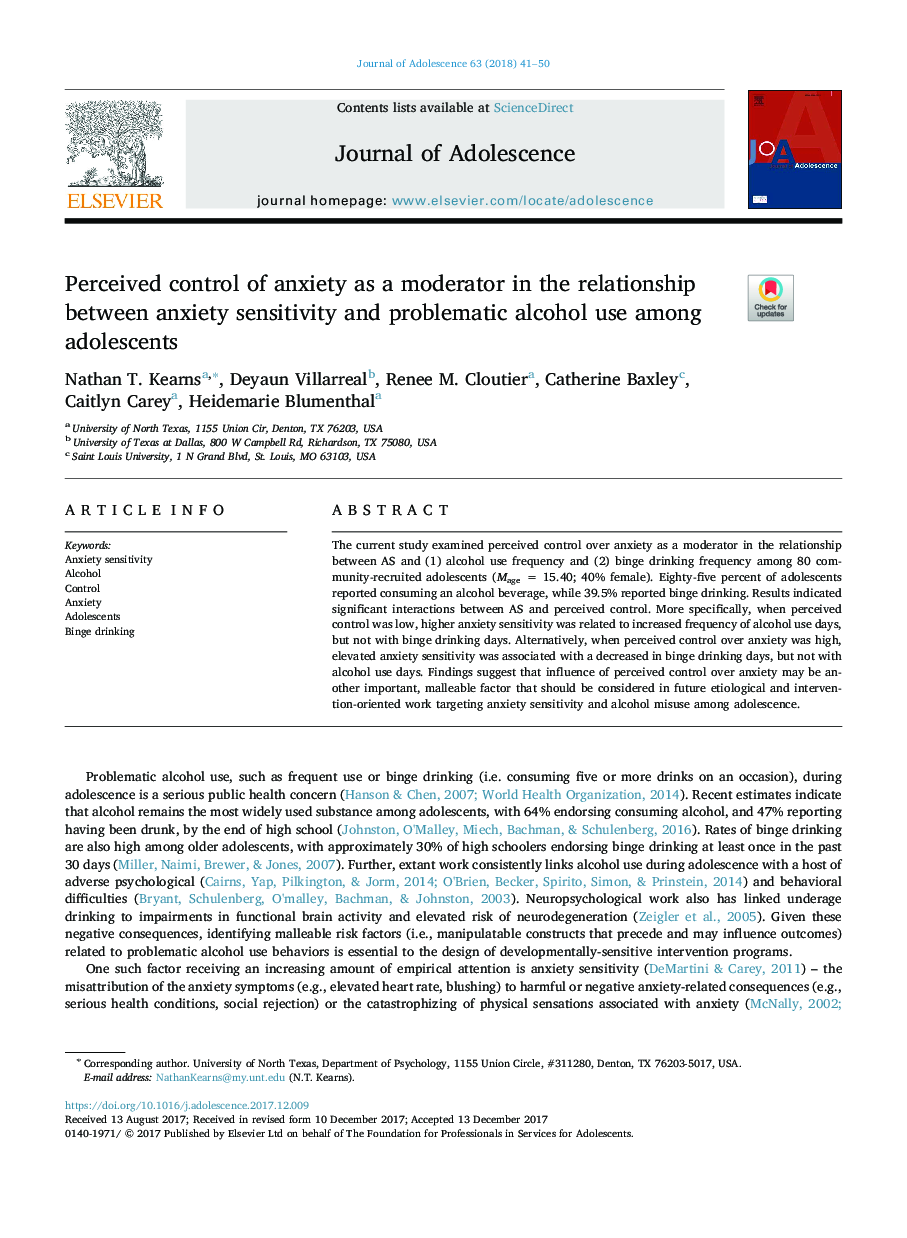| Article ID | Journal | Published Year | Pages | File Type |
|---|---|---|---|---|
| 7240968 | Journal of Adolescence | 2018 | 10 Pages |
Abstract
The current study examined perceived control over anxiety as a moderator in the relationship between AS and (1) alcohol use frequency and (2) binge drinking frequency among 80 community-recruited adolescents (Mage = 15.40; 40% female). Eighty-five percent of adolescents reported consuming an alcohol beverage, while 39.5% reported binge drinking. Results indicated significant interactions between AS and perceived control. More specifically, when perceived control was low, higher anxiety sensitivity was related to increased frequency of alcohol use days, but not with binge drinking days. Alternatively, when perceived control over anxiety was high, elevated anxiety sensitivity was associated with a decreased in binge drinking days, but not with alcohol use days. Findings suggest that influence of perceived control over anxiety may be another important, malleable factor that should be considered in future etiological and intervention-oriented work targeting anxiety sensitivity and alcohol misuse among adolescence.
Related Topics
Health Sciences
Medicine and Dentistry
Public Health and Health Policy
Authors
Nathan T. Kearns, Deyaun Villarreal, Renee M. Cloutier, Catherine Baxley, Caitlyn Carey, Heidemarie Blumenthal,
